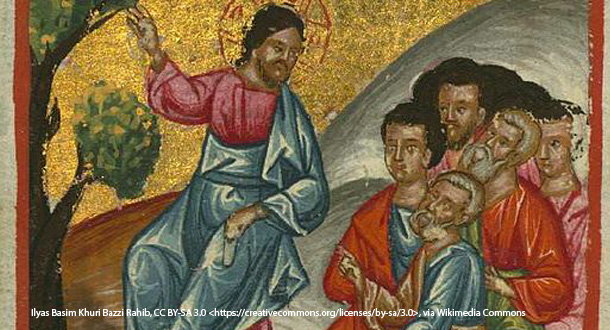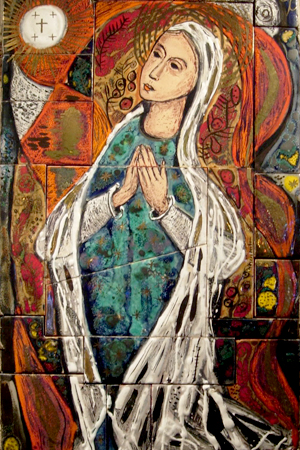
Scripture:
Sirach 36:1, 4-5a, 10-17
Mark 10:32-45
Reflection:
“Give new signs and work new wonders.” (Sir 36:6)
This single line from the Book of Sirach (at times called the Book of Ecclesiasticus) leapt off the page as I read today’s readings. The bickering disciples depicted in today’s gospel from Mark usually get my attention. Maybe because those guys remind me of growing up with eight siblings. But not today.
Breathe in: “Give new signs.”
Breathe out: “Work new wonders.”
My tendency in prayer is to be very active. I engage my imagination and play out gospel scenes. I am not really very good or practiced in quiet meditation. Yet I am quite drawn to these seven words.
A mantra is a word or phrase repeated over and again to aid concentration in meditation. It is very common in eastern religions and the growing popularity of meditation to help quiet the mind and experience the Divine. Its intention is to step back from all the distractions around us and focus on simple, repetitive words and slow, measured breathing.
Breathe in: “Give new signs.”
Breathe out: “Work new wonders.”
With all that has happened in the past fifteen months, I experience a growing need to find some quiet to hear the voice of the Good Shepherd. The rancor, incivility, rudeness, and disrespect in word and action in these stressful times lead me to plead with God: “Give new signs and work new wonders.” And if I can find that quiet, I trust God will reveal all the wonderful signs and wonders that are indeed around me. I’m just too often distracted to see them. And so, I’m trying this.
Breathe in: “Give new signs.”
Breathe out: “Work new wonders.”
Robert Hotz is a consultant with American City Bureau, Inc. and was the Director of The Passion of Christ: The Love That Compels Campaign for Holy Cross Province.







